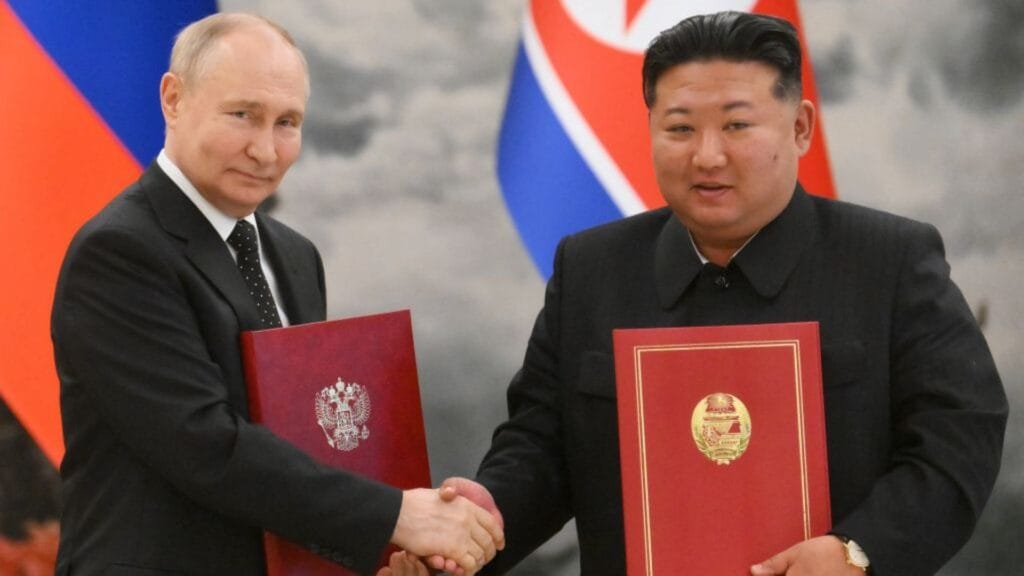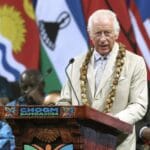The latest frenzy is a controversy involving Pyongyang, alleged to want to deploy troops to Russia. It is sending eyebrows across the globe as North Korea has been reportedly sending thousands of its soldiers to Russia to enable Russia to wage its war against Ukraine in partnership with Russia. Adding to the unease, Ukraine’s President Volodymyr Zelenskyy has cautioned that these troops could be moved in into the conflict as soon as this coming Sunday. However, North Korea refused to fully confirm this, saying it would follow international laws if an action of this sort were to occur.

For the first time, North Korea’s Vice Foreign Minister Kim Jong Gyu spoke on the issue on Friday, stating through the country’s official media, Korean Central News Agency (KCNA), that such an action would not violate any international laws, though he stopped short of admitting North Korea’s direct involvement.
“If there is such a thing that the world media is talking about, I think it will be an act conforming with the regulations of international law,” he said cautiously, distancing the North Korean Foreign Ministry from the activities of the Ministry of National Defence. It is quite interesting how North Korea is portraying this theoretical deployment as “legal,” almost like they are pre-empting the inevitable backlash from the international community. To me, it sounds like a way to avoid accountability while still having an alliance with Russia.
Unverified Footage Raises Questions, South Korea Urges Russia to Halt Alleged Troop Deployment
Videos that are circulating on social media showing North Korean soldiers in Russian uniforms at military installations in the Far East of Russia are going to support South Korean officials, who long have been very skeptical of North Korea’s claims that it is supplying arms to Russia. Its UN representatives in response have accused these claims of being groundless rumor-mongering.
This development raises quite tricky questions: If these reports are to be believed, what’s in it for North Korea? It’s not just patronizing an ally, because the relationship between Russia and North Korea is often much more pragmatic than ideological. There may be a transactional aspect at play here; North Korea might be looking for more resources, firepower, or strategic favors in return for its support. In my mind, this would prove to be a dangerous step if this does prove to be true-that is, if it eventually situates North Korea in an even more isolated position.
Diplomatic Tensions: S. Korea Berates Russia Over Arms Transfer
South Korea shot back with biting words as it called on Russia to halt what it terms “illicit cooperation” with Pyongyang. The South had been so incensed that it was saying it might reverse its decision not to provide weapons directly to Ukraine. As it stands, the laws in South Korea will prevent the country from selling arms to active war zones, although the country has already sold billions in military equipment to Poland—a key supporter of Ukraine. If South Korea were to change this policy, it would be a momentous shift and could well increase the tensions in the region.
This part is especially interesting to me because it casts light on how interdependent international alliances are in scenarios like these. South Korea’s take brings out a domino effect wherein North Korea’s alleged involvement with Russia could lead to direct military support to Ukraine. If it ultimately ends up that South Korea supplies Ukraine directly, this might alter the dynamics of war, bringing pressure onto other countries as well to eventually be prepared to take stances about their involvement.
North Korea’s Justification: A Legal or Strategic Cover?
North Korea’s Pyongyang defense chief Kim Jong Gyu’s recent statements are an incitement because, although he does not confirm the deployment, he still takes a defensive posture in asserting that if such a thing were to happen, it would be legal. “There will existing forces which want to describe it as illegal one,” he added, warning North Korea that it is bracing for international pressures. This appears to be an agenda to sit in the front row and appear ready to pre-empt all kinds of accusations rather than actual justification. To my best perception, North Korea’s core claims to “legality” could be a means to shun international pressures while the official is still ambiguous but not yet decided in full support of Russia so that there won’t be any public conflict between him and the world powers.
In my perception, this situation proves that North Korea’s foreign policy is pretty unpredictable. The regime often works off these ambiguities to its advantage, playing a mysterious and defiant demeanor on the world stage. Does North Korea’s brinksmanship mean troops in uniform, or not? The way it has framed its response leaves room for all sorts of interpretations—and that ambiguity can be a powerful tool in international politics. This might just be another way North Korea stays afloat and in the know about the big boys, all while skating on the edge of international tolerance.
What’s Next?
With the world watching these developments closely, broader implications are there. If North Korea indeed sends troops to buttress Russia, it would then add another stratum of complexity to a conflict already so convoluted and incoherent in its narrative. This could result in an even more intense geopolitics showdown with responses from the United States, the United Nations, and neighboring countries like South Korea.
It could indeed just be North Korea playing a game of using its alliances to get something out of Russia, either resources or strategic support. One way or another, the bottom line is how long North Korea can keep strutting this tightrope before it precipitates some form of international response. We’ll be here to keep you up to speed on the latest developments and perspectives in this high-stakes political game as this story unfolds.
Analysis by Atul Raj






